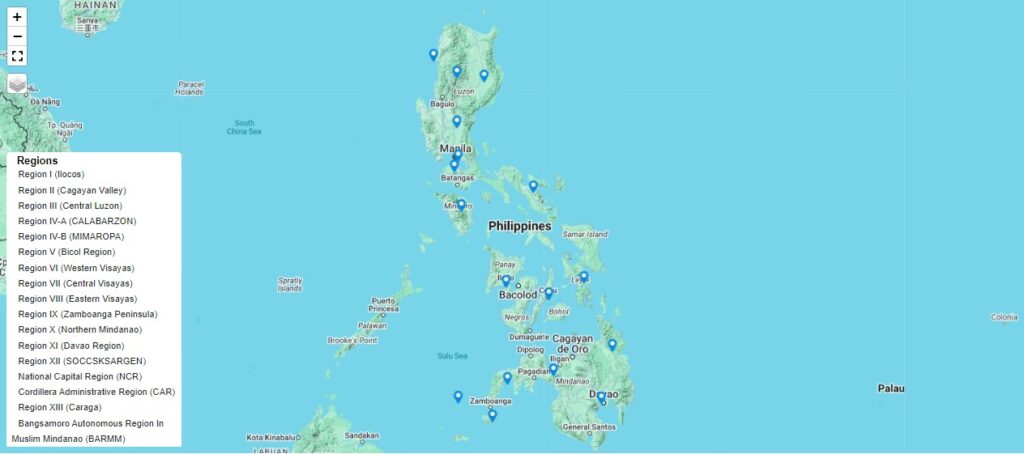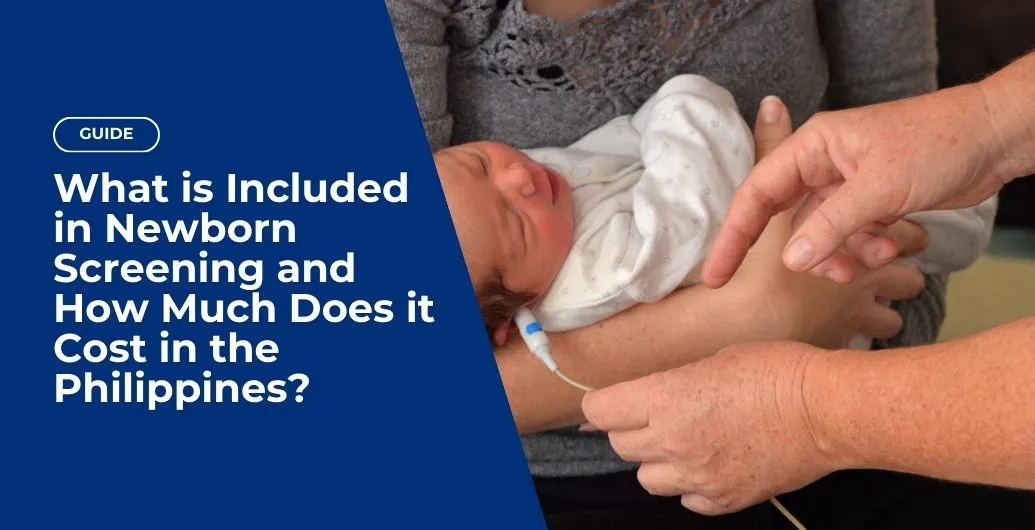Estimated reading time: 5 minutes
Newborn screening is an important procedure that every baby in the Philippines should undergo shortly after birth. It helps detect serious but treatable conditions, so you can take early action and avoid potential health complications. To help inform you of the test’s benefits, we’ll explore what conditions are tested during newborn screening and provide an overview of the costs in the Philippines.
Table of contents
- What is Newborn Screening?
- Why is newborn screening important?
- What is included in newborn screening in the Philippines?
- How is newborn screening done in the Philippines?
- How much is newborn screening in the Philippines?
- What is the Newborn Care Package?
- How to avail PhilHealth Newborn Care Package?
- Where to go for a newborn screening test in the Philippines?
- How can you claim newborn screening results in the Philippines?
- Important Reminders During Newborn Screening
- Newborn Screening in the Philipipnes: FAQs
What is Newborn Screening?
A newborn screening (NBS) is a medical procedure that helps determine whether your baby has a developmental, genetic, or metabolic disorder. This test lets doctors diagnose symptoms early and start treatment immediately if the test is positive.
Newborn screening in the Philippines began in June 1996. It was integrated into the public health delivery system through the passage of the Republic Act (RA) 9288 or the Newborn Screening Act of 2004.
Also Read: GUIDE: PhilHealth Hospitalization Coverage and Benefits
Why is newborn screening important?
Newborn screening is important because it can detect disorders before signs and symptoms are detected. As a result, doctors can provide treatment early and prevent the consequences of untreated conditions.
For instance, fatty acid disorders can lead to the following complications if they’re not detected early:
- Developmental and physical delays
- Neurological impairment
- Sudden death
- Coma
- Seizure
- Enlargement of liver and kidney
- Muscle weakness
What is included in newborn screening in the Philippines?
Newborn screening in the Philippines originally tested for six disorders, such as:
- Congenital Hypothyroidism (CH)
- Congenital Adrenal Hyperplasia (CAH)
- Phenylketonuria (PKU)
- Galactosemia (GAL)
- Glucose-6-Phosphate Dehydrogenase (G6PD) Deficiency
- Maple Syrup Urine Disease (MSUD)
However, the Expanded Newborn Screening (ENBS) program in the Philippines increased the screening panel to more than 28 disorders. Aside from the disorders mentioned above, the ENBS tests for the following:
- Amino Acid Disorders
- Fatty Acid Disorders
- Organic acid Disorders
- Urea Cycle Defect
- Hemoglobinopathies
- Galactosemia
- Glucose-6-Phosphate Dehydrogenase Deficiency
- Cystic Fibrosis
- Biotinidase Deficiency
How is newborn screening done in the Philippines?
Newborn screening is done within 24 hours of your baby’s birth. Medical professionals draw a few drops of blood by pricking your baby’s heel. The blood is then blotched on a special absorbent filter card and sent to the Newborn Screening Center (NSC).
If the newborn screening test result is positive, your baby’s doctor will follow up with further testing. If those tests confirm a disorder, the doctor may refer you to a specialist for treatment.
Note
Newborn screening test should only be done by a physician, nurse, medical technologist, or trained midwife.
How much is newborn screening in the Philippines?
The old screening test in the Philippines costs ₱550, while the Expanded Newborn Screening is offered at ₱1,750. The test is included in PhilHealth’s Newborn Care Package.
What is the Newborn Care Package?
The Newborn Care Package is a Philhealth benefit package that provides essential health services to newborns during the first few days of their life. Aside from newborn screening, it covers essential newborn care and hearing screening tests.
How to avail PhilHealth Newborn Care Package?
If you’re a PhilHealth member, you can take advantage of the package upon delivery of your baby at any accredited newborn screening facility.
Also Read: GUIDE: What are the Philhealth Maternity Benefits and How to Avail Them?
Where to go for a newborn screening test in the Philippines?

Your baby can get a newborn screening test from more than 7,000 newborn screening facilities in the country. To help you find the nearest center, here’s a list of active health facilities by region:
Region I (Ilocos)
Region II (Cagayan Valley)
Region III (Central Luzon)
Region IV-A (CALABARZON)
Region IV-B (MIMAROPA)
Region V (Bicol Region)
Region VI (Western Visayas)
Region VII (Central Visayas)
Region VIII (Eastern Visayas)
Region IX (Zamboanga Peninsula)
Region X (Northern Mindanao)
Region XI (Davao Region)
Region XII (SOCCSKSARGEN)
National Capital Region (NCR)
Cordillera Administrative Region (CAR)
Region XIII (Caraga)
Bangsamoro Autonomous Region in Muslim Mindanao (BARMM)
How can you claim newborn screening results in the Philippines?
In the Philippines, you can claim newborn screening results in the same facility where you availed the service. They’re often available for 7-14 working days. However, the health facility will immediately alert you if your baby’s test is positive.
Important Reminders During Newborn Screening
To make the process hassle-free, here are important reminders you can keep in mind during the screening:
- While the test is mandatory in public healthcare facilities, fees can vary in private hospitals. So, make sure to check and confirm if your insurance covers it.
- Make sure to provide the correct phone number and address to the health facility so they contact you for the test results.
- Always keep a copy of your baby’s newborn screening result since this can be useful for their medical history.
Newborn Screening in the Philipipnes: FAQs
To learn more about newborn screening, here are answers to frequently asked questions:
Yes, newborn screening is mandatory by law, as established by RA 9288, the Newborn Screening Act of 2004. The law mandates healthcare providers to offer and provide the test within 24 hours after a baby’s birth.
No preparation is needed for a newborn screening. Just be ready to provide consent for the screening. Depending on the health facility, you might be asked to sign a form acknowledging you understand the procedure and its benefits.
No, newborn screening can’t detect autism. However, a hearing test may be able to spot babies who are at high risk of developing autism.
Sources: (1), (2), (3), (4), (5)
Keep Reading: GUIDE: PhilHealth Contribution

Leave a Reply